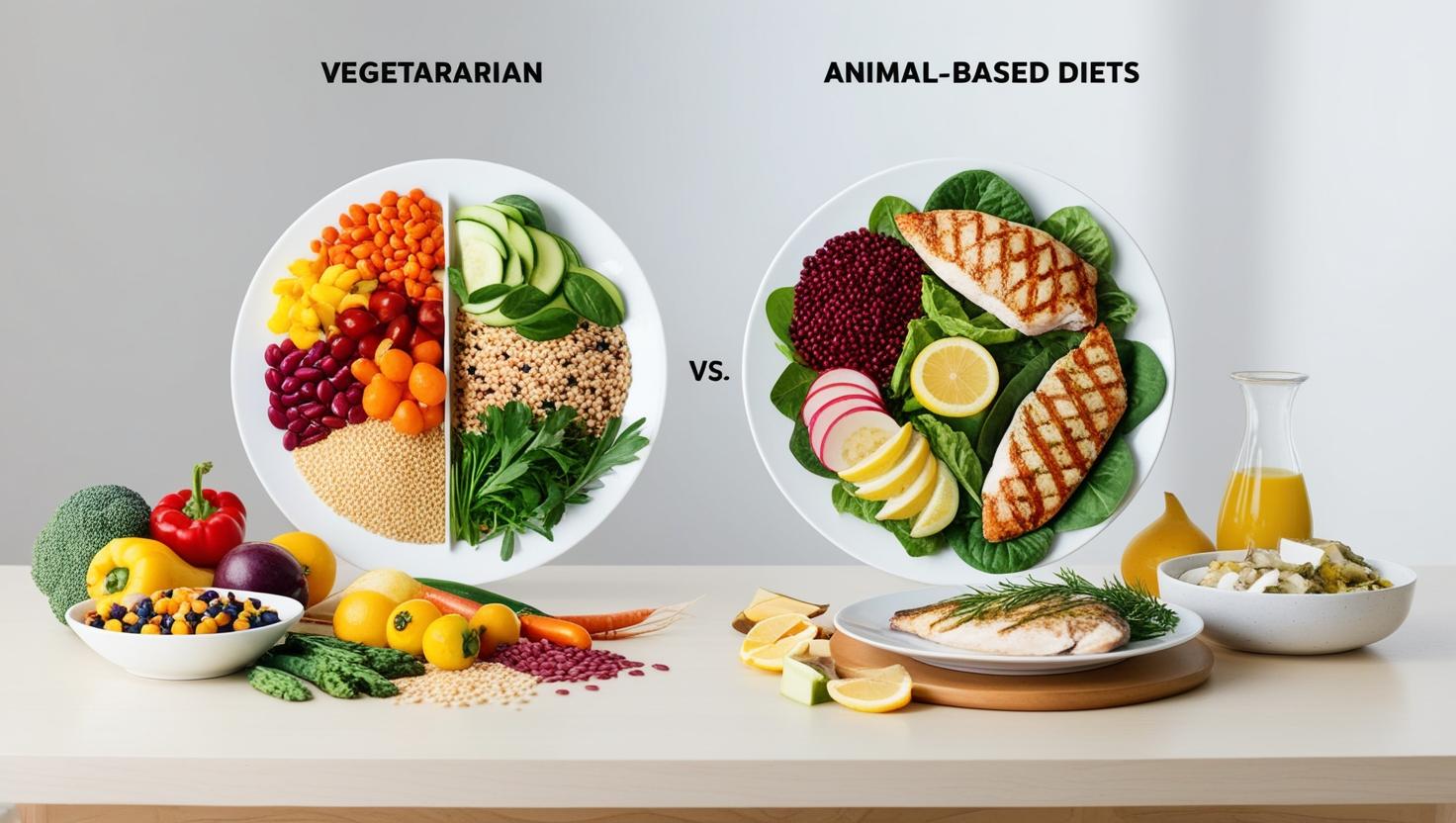
Based on my research, I’ve come to learn that managing IBS (Irritable Bowel Syndrome) through diet isn’t a one-size-fits-all approach. Whether a vegetarian diet or incorporating animal protein is better for gut health really depends on your individual triggers, symptoms, and overall gut health. While I’ve never personally experienced IBS, I’ve found that a combination of plant-based and animal-based foods might be the most beneficial approach for many individuals, but it’s important to consult with a healthcare professional to create a plan tailored to your specific needs.
Rich in Fiber:
Anti-Inflammatory Benefits:
Gut Microbiome Support:
Low in Saturated Fats:
High FODMAP Foods:
Protein Deficiency Risks:
Nutrient Deficiencies:
For some individuals with IBS, adding animal protein to the diet—such as chicken, turkey, fish, or eggs—can offer several benefits:
Easily Digestible Protein:
Rich in Amino Acids for Gut Healing:
Balances Blood Sugar:
Low-FODMAP Options:
In my research, I found that a flexitarian approach, which is primarily plant-based but includes some animal proteins, seems to offer the best balance for many people with IBS:
Include Gut-Friendly Plants: Focus on low-FODMAP vegetables like zucchini, spinach, carrots, and potatoes. Avoid high-FODMAP foods like beans, lentils, broccoli, and garlic, which can aggravate symptoms.
Pair with Animal Protein: Including lean meats (like chicken or turkey), eggs, and fish can support easier digestion and provide the necessary protein to support gut health.
Supplement as Needed: If you prefer a predominantly vegetarian diet, consider adding supplements such as L-glutamine, collagen, and vitamin B12 to support gut healing and overall nutritional balance.
A 2020 study in the journal Nutrients found that low-FODMAP diets, which often exclude many high-FODMAP plant-based foods, significantly improved IBS symptoms in up to 76% of participants. Many individuals found better relief when incorporating easily digestible animal proteins into their diets.
Research from the American Journal of Gastroenterology (2021) found that a diet rich in soluble fiber (from low-FODMAP vegetables) combined with lean animal protein supported gut healing and reduced bloating in IBS patients.
A 2017 review emphasized the role of amino acids, such as L-glutamine (found in animal protein), in repairing the gut lining and reducing IBS symptoms.
When managing IBS, diet plays a crucial role, and it’s important to tailor your approach based on what works best for you. While a vegetarian diet can be effective for some, the inclusion of animal proteins may provide additional benefits for gut healing and symptom relief. It’s essential to listen to your body, experiment with different foods, and consult with a healthcare professional to develop a personalized plan that supports both your digestive health and overall well-being.